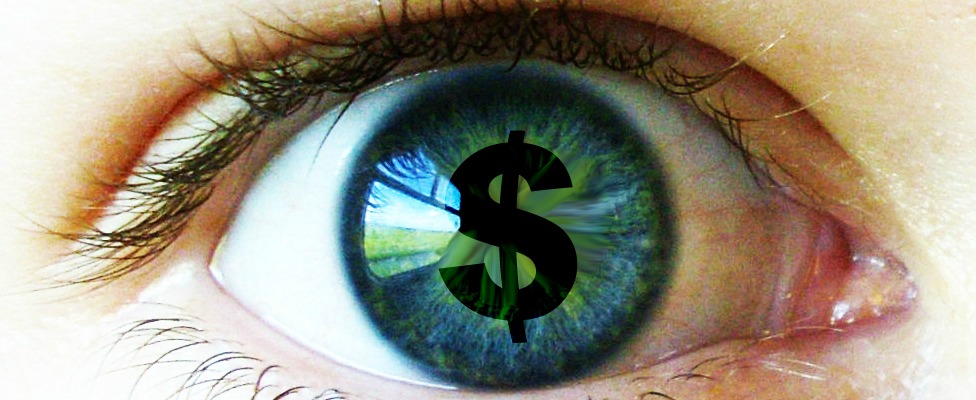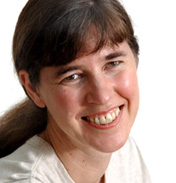My Part 1 first piece of advice on this topic was to examine and fulfill your emotional needs so that you reduce your need for money. This next tip is related but much more subtle and very valuable. It is a rare person who can be conscious enough to follow this advice fully. But to whatever extent you can do it,you will benefit.
2) Let your highest, most secure self make all your money decisions.
In other words, don’t let your ego get involved in your most important decisions. What I mean by the ego is the part of you that is motivated by fear, even in a subtle way.
We have all experienced times when we are driven by fear, for example when we scream on a roller-coaster, or when we sell our stocks during a short term crisis. Of course we can’t possibly make the best decisions when we are gripped by anxiety or frozen in terror. Our mind and our senses shut down in panic. It is obvious in an extreme case and it is true although less obvious in all the day-to-day decisions that we make.
What would you do if you were not afraid?
In 2001, soon after I started my coaching business, I was considering whether or not to spend time developing a non-profit organization of coaches in Hong Kong, even though it would take time away from direct income earning. I was losing money every month and I worried about helping my competitors rather than helping myself. I remember my coach asking me “What would your highest self do?” I knew right away that my financial fears could keep me focused on my selfish business interests, leading me to miss the bigger opportunities that my more secure self could see. Intuitively I knew that investing in building a community of coaches would serve me better in the long run, and that is what I did. In retrospect, it seems obvious that it was an effective approach that brought me many great benefits.
Fear acts like a block to clear thinking, often unconsciously. Here’s another more subtle example.
I remember deciding to become a regular contributor to another Hong Kong coach’s blog. I had a list of smart justifications for making this arrangement. A year or so later when I was ending my article-writing deal, I realized I had actually made the decision based on fear: I had felt that if I didn’t write in that blog, I would fall behind. I was previously unaware that the feeling that ‘I had to do it’ was not intuition. It was fear.
Your hidden fears can lead you in all kinds of directions that your fearless self might not choose. And the only way to know if your decisions are fearless, is to raise your sensitivity to fear. Once you sense the fear is there, you can listen to the truth in its message while making the decision separately. Had I done that with my article-writing deal, I might still have undertaken the project because there were good reasons to do it. But I never had the chance to make the decision cleanly without the silent veto-power of my fear.
Fear can steal your freedom in many different ways. You might be afraid of taking action, or afraid of not taking action. You could feel guilty (a form of fear) about speaking up, or guilty about staying quiet. You might avoid looking at what can go wrong, or be hesitant to trust in a positive outcome. When you say you ‘have to’ do something, it may be a fear masquerading as good advice. Only you can find your fears and determine how they are limiting your thinking and your actions.
Recently I had a bad feeling about a corporate project that on the surface looked like a fantastic opportunity that I am fully qualified to do. But being honest with myself, I felt a pain in my chest when I thought about doing it. And if I thought about rejecting the project, I felt guilty. Bad feelings either way! I decided to set aside my feelings of guilt (clearly a fear/ego response), and free myself from needing to go forward with the project. That act of letting go allowed me to explore other more creative solutions involving other consultants. With a few conversations and different turns of thinking, I came up with a way to serve the client that excites me without hesitation. Uncovering and examining my fears allows me to work with more confidence and enjoyment which I’m sure will ultimately lead to more success.
How to Do It
The key to making fearless decisions is to become more sensitive to your bodily sensations that indicate fear. It doesn’t mean you will be immersed in fear, or overtaken by your fears. Your aim is to become an observer of it, even a kindly appreciator of the messages your body brings you, so that you can then make your decisions from a broader point of view. Mindfulness Training is one method of increasing your capacity to observe your own fear –a very smart investment toward long term business and career success.
The Benefits
There are several important benefits of making decisions with your highest, most secure self.
First, you are much more likely to make a decision that takes into account all the facts and possibilities. When we are unafraid, we are much more open to sensing what is happening; we have fewer filters; we see more.
Secondly, you are more likely to make a decision that meets your personal needs more completely. For example, when you set aside your fears about security, you can take a longer term approach to business building, while still handling your practical financial needs. You can allow yourself more choices as to how to build your business and give your personal preferences higher priority. (Be aware that fear can also drive us to to be lazy, or weak, or stubborn. The key is to recognize what is fear and what is not.)
Thirdly, your decisions are likely to be better aligned with others, and therefore more likely to capitalize on trends and opportunities that you could not even guess were available to support you. Synchronicity happens much more frequently when you are open, aware and aligning your actions with the greater needs of your community, rather than simply aiming to fulfill your own selfish, fearful needs.
Conclusion
As the world is continuing to become more dynamic and complex, we need new capabilities for more effectively sensing all options and choosing our best paths. While our primitive fear-based decision-making systems are still crucial in circumstances that call for rapid protective action, we can cultivate higher level decision-making systems which bring out the full power of our intellectual and intuitive abilities. The ability to notice our fears, detach from them and make decisions from our most secure selves is an emerging skill that will power the most successful people in the coming decades.



